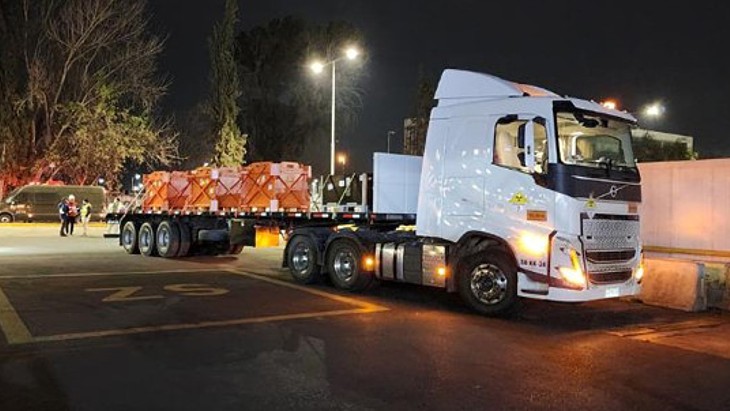
Most radioactive waste arising from nuclear applications consists of DSRS. Radioactive sources are used in different devices in medical, industrial and agricultural facilities. They have to be accounted for and when they are no longer usable, they have to be recovered, dismantled, stored and, in some cases, prepared for transportation. The removed DSRSs - mostly cobalt sources used for cancer treatment in Chile - have been in temporary storage since the end of their use in 1992.
The IAEA said that the DSRSs "represent about half of the radioactive material received yearly in waste management facilities from different activities around the country".
Luis Huerta Torchio, director of the Chilean Nuclear Energy Commission (CCHEN), said: "The removal of these sources has multiple benefits for the CCHEN and the whole country, and it is in line with the circular economy objectives, in terms of recycling and reuse. The removal has significantly reduced the risk for any type of incident associated with these disused sources. In addition, it freed up to 30 per cent of space in the national storage facility used for disused radioactive sources, and subsequently extended the possibility of its use for about ten more years."
Olena Mykolaichuk, director of the IAEA’s Nuclear Fuel Cycle and Waste Technology division, said: "The IAEA technically oversaw the removal of the sources from Chile to ensure that it was performed safely and securely. An operation of this scale cannot succeed without the dedicated efforts of organisations like CCHEN, skilled contractors, and the regulatory bodies involved - the experience gained is invaluable and represents a model that can be applied for future projects in other countries."
The three-year IAEA Multi-Regional Project on Sustainable Management of Disused Sealed Radioactive Sources, funded by Canada, began in 2019 with 11 Latin American, African and Pacific countries in its first phase. A second phase began in November 2022 with 24 more countries taking part.
Hildegarde Vandenhove, director of the IAEA's Division of Radiation, Transport and Waste Safety, said: "The increase in the number of participating countries indicates the success of the first phase of the project, the global interest in the safe and secure handling of DSRSs and, at the same time, the amount of work that remains to be done in this field."
The operational plan for Chile was agreed in December 2021 and involved the verification of the radioactive sources, appropriate packaging for transport, transportation and shipment to the recycling facility. The first 17 DSRSs were exported in October 2022 and 14 more in July this year.